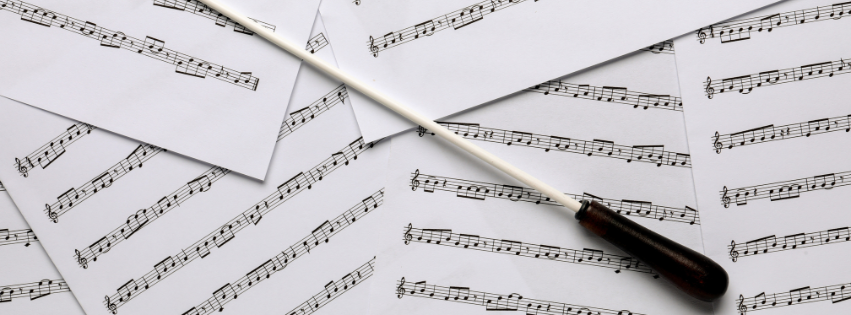Here is a selection of beautiful new albums of orchestral music that have been released in the first term of 2023.
Les Nuits de Paris
François-Xavier Roth, Les Siècles (Bru Zane)
Here is a splendid album that makes you want to dance to the swinging rhythms of learned and popular dance music composed in 19th century France. From the Folies Bergères to the ballets of the Paris Opera, from popular balls to court balls, it is a vast and rich panorama of dances in the 19th century that is presented in this disc, with a fascinating booklet to accompany the listening.
This disc highlights the repertoire of well-known composers such as Gounod, Massenet, Delibes and Saint-Saëns, as well as composers unknown to the general public such as Waldteufel, Guiraud, Joncières and Hervé. And then, in the midst of all these men, there is a female composer, Jeanne Danglas, « one of the few women of the Romantic period to have taken an interest in the repertory derived from popular dances », as Alexandre Dratwicki and Etienne Jardin explain in the libretto: « Her piece exudes all the charm of late Romanticism with its delicious harmonies and heady melodies, handled with a skill that can well withstand comparison with her talented male contemporaries. »
The light-hearted, colourful, chiselled interpretation by François-Xavier Roth and the musicians of Les Siècles takes us into a veritable musical whirlwind, which makes us want to dance in our living rooms. This is an album as sparkling as a cloud of champagne bubbles, to be listened to without moderation.

Grażyna Bacewicz : Symphonies Nos. 3 & 4
Lukasz Borowicz, WDR Sinfonieorchester (CPO)
A cycle of recordings devoted to the symphonic music of the Polish composer Grażyna Bacewicz (1909-1969), one of Nadia Boulanger’s many pupils, has been awaited for some time. With this superb first album featuring her Symphony No. 3 (1952) and Symphony No. 4 (1953), we are well on the way to seeing that wish fulfilled thanks to the formidable CPO label.
As conductor Łukasz Borowicz explains in the booklet (in German and English) of the album, these two symphonies fit into the musical landscape of the time, when socialist realism was promoted by the authorities, while at the same time allowing us to appreciate Bacewicz’s personal musical writing: « In these two symphonies the composer achieved an excellent balance between music of the past (form referring to tradition) and new sources of inspiration (folklore) and a new approach to traditional elements (rhythm). In this way she managed to reconcile the independent artistic qualities of this music with the expectations of the cultural policy of the time. »
Thanks to the magnificent performance of Polish conductor Łukasz Borowicz and the musicians of the WDR Sinfonieorchester, these two monumental and ebullient symphonies find an embodiment that does full justice to the beauty of Grażyna Bacewicz’s music.

Walker & Dawson: Orchestral Works
Asher Fisch, Roderick Cox (Seattle Symphony Media)
The fight for the recognition of the music of African-American composers has made notable progress in recent years with the recording by prestigious American and European orchestras of works by William Grant Still, William Dawson, Florence Price and George Walker. We are still far from total recognition, but we can only welcome a greater presence of music composed by African-American musicians in concert programmes (at least in the United States and the United Kingdom) and in recordings. For, as conductor Kellen Gray, whom I interviewed a month ago for the website Classique Mais Pas Has Been, reminded us, « we conceive of the foundations of our art on an incomplete history when we do not include the people who have influenced, even taught, some of our most important composers here in the United States. »
This gorgeous recording by the Seattle Symphony orchestra and conductors Asher Fisch and Roderick Cox highlights two composers from two different generations in the history of black American classical music, William Dawson (1899-1990) and George Walker (1922-2018). As Kori Hill explains in the booklet of the disc, with these two composers we are presented with « a microcosm of Black classical composers’ stylistic diversity. Each draw upon African American music idioms for different settings, characters and functions. And yet, the works connect through the importance of programmatic and emotive narratives within the Black classical practice. Whether quoting or arranging spirituals, or using blues notes or serialism, the music of both Walker and Dawson tells a story, be it enormous internal journeys or a massive historical epic. »
Under the direction of Asher Fisch for the works of George Walker, and Roderick Cox for William Dawson’s Negro Folk Symphony, the musicians of the Seattle Symphony, along with soprano Nicole Cabell in Lilacs for Voice and Orchestra, give a sumptuous and strikingly detailed performance of these works.

Carl Nielsen : Symphonies Nos. 2 & 6
Fabio Luisi, Danish National Symphony Orchestra (DG)
With this magnificent third album, devoted to symphonies Nos. 2 and 6 by Carl Nielsen (1865-1931), conductor Fabio Luisi and the Danish National Symphony Orchestra conclude their superb cycle of the symphonies of Carl Nielsen, whose musical style incorporates elements of late Romanticism, Impressionism and Modernism.
The inspiration for his Symphony No. 2 (1901-1902) came from a visit to a village restaurant where he saw a painting depicting the four human temperaments: choleric, phlegmatic, melancholic and sanguine. In this symphony each movement represents one of the four temperaments with great virtuosity and expressiveness.
Symphony No. 6, entitled « Sinfonia semplice » (1925), is the composer’s last symphony, which he described as joyous and « entirely idyllic in character ». But on listening, one is confronted with a very heterogeneous work, with playful overtones, but shot through with anguish, sarcasm and melancholy.
As in the rest of the cycle, the Danish National Symphony Orchestra impresses with a sound that combines power, precision, depth and colour. Fabio Luisi, the orchestra’s music director since 2017, gives an interpretation full of impetus, clarity and sharpness, and brings great legibility and coherence to this repertoire that is still too little known to the general public.



Laisser un commentaire